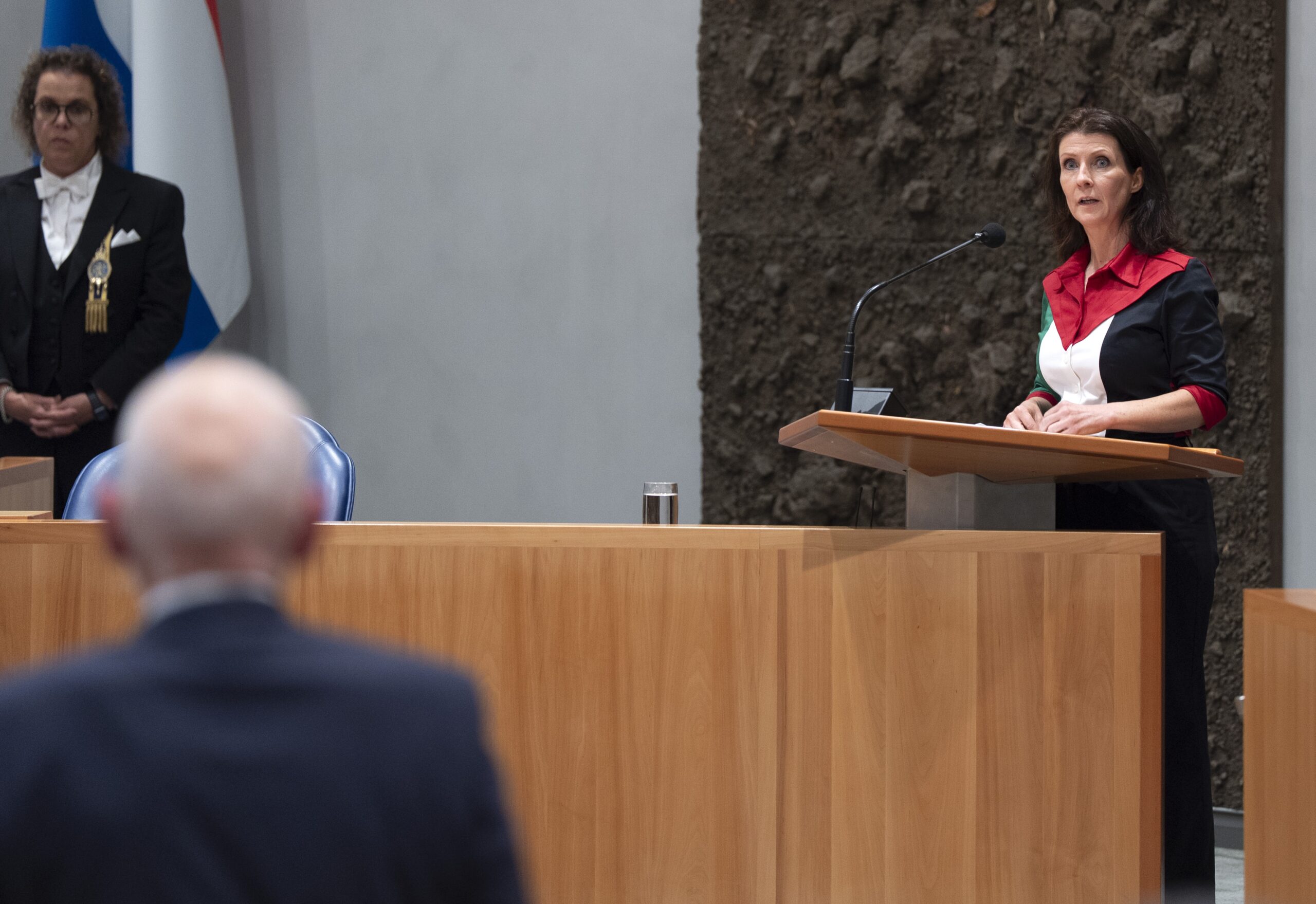Burqa ban? Election campaign starts in votes on budget motions

Burqas could be banned everywhere in the Netherlands, if the results of Thursday’s late-night vote in parliament ever become law.
In the two-day budget debates – normally used to scrutinise next year’s plans – the emphasis was on party positioning and campaigning for the upcoming general election on October 29.
A populist motion proposed by the leaders of the remaining coalition parties VVD and agricultural party BBB, plus far-right JA21, to extend the existing ban on burqas from public buildings to all public space won a majority.
MPs also passed a motion to remove the controversial “spreading” law to distribute asylum seekers around the country and to mark the radical-left Antifa movement as a terrorist organisation – even though the government had recommended rejecting this for legal reasons. They also passed several motions on addressing childhood and energy poverty.
While the second day of debate is normally a time for the prime minister to defend the following year’s spending plans, caretaker prime minister Dick Schoof’s most pertinent comment on his own job was that he did “not wish this on anyone.”
Arjan Noorlander, political correspondent for current affairs programme Nieuwsuur, said: “It wasn’t a debate about the plans for next year – there was hardly any discussion about this. [The first day was] suddenly an election debate and [the second] was primarily a debate with the prime minister on what to do about Gaza because there is an ever more vocal group of MPs who really think the government is not doing enough.”
Esther Ouwehand, leader of the Party for the Animals PvdD, appeared in parliament to present her motions wearing a blouse modelled on the Palestinian flag – and was asked by far-right PVV politician and speaker Martin Bosma to change. Later, a Socialist Party motion to bring injured children to the Netherlands for medical treatment was rejected by a majority of one single MP.
In his budget speech on Tuesday, Dutch king Willem-Alexander called for a new mood of compromise, especially in parliament. Although some MPs adopted a softer tone, the parties that are gaining most interest in the polls were subject to the most scrutiny. Henri Bontenbal, head of the Christian Democratic CDA party, which is rapidly recovering from an election wipeout in 2023, faced questions on his proposals for a “freedom levy” tax to fund defence.
On Thursday Joost Eerdmans, head of the small JA21 party, faced criticism on his plans to reopen gasfields in Groningen in order to provide cheaper fuel. The major fields were closed after a parliamentary commission found local people’s concerns about increasing earthquakes and severe damage to housing had been ignored for decades.
Geert Wilders, head and sole member of the far-right PVV, dropped a supposed “mildness” he had adopted in recent years, since all other major parties have said they would not form a coalition with him. Some MPs questioned Schoof on Thursday on why he had allowed apparently unconstitutional speech from Wilders on racial minorities and the Islamic religion in parliament.
With six weeks to a general election, the PVV is leading in the polls, with the CDA and Frans Timmermans’ GreenLeft/Labour (GL-PvdA) in second place.
Thank you for donating to DutchNews.nl.
We could not provide the Dutch News service, and keep it free of charge, without the generous support of our readers. Your donations allow us to report on issues you tell us matter, and provide you with a summary of the most important Dutch news each day.
Make a donation